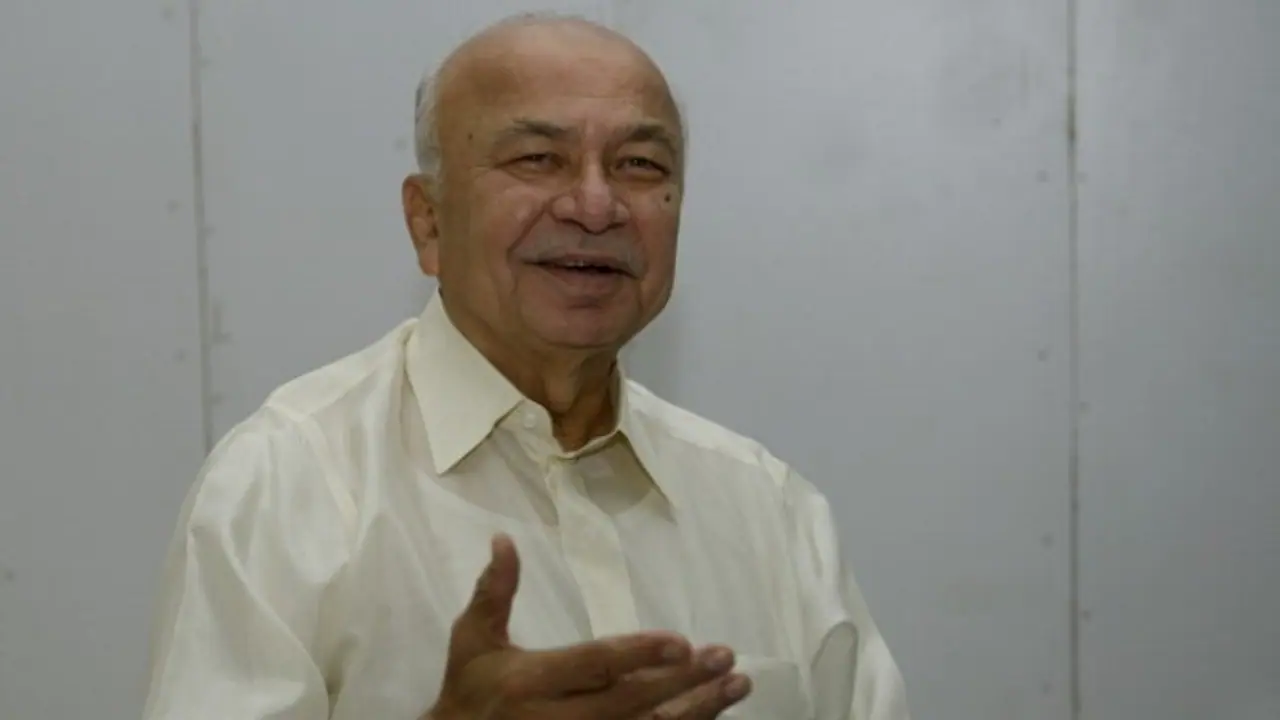Former Home Minister and senior Congress leader Sushil Kumar Shinde recently acknowledged that the controversial term “Bhagwa Atankwad” or “Saffron Terrorism” was not merely a personal sentiment but rather an ideological stance of the Congress party.
In a shocking revelation during a recent interview with journalist Shubhankar Mishra, former Home Minister and senior Congress leader Sushil Kumar Shinde acknowledged that the controversial term “Bhagwa Atankwad” or “Saffron Terrorism” was not merely a personal sentiment but rather an ideological stance of the Congress party. This admission has reignited discussions about the party's approach to Hindutva and its implications for India's political landscape.

During the interview, Shinde reflected on his earlier use of the term “Bhagwa Atankwad,” stating, “I don’t know why the word ‘terrorism’ was used. It shouldn’t have been. It was wrong at that time.” His comments indicate a reluctant acknowledgment that the term, which has been perceived as an attempt to tarnish the image of the Hindutva movement, was a misstep by the Congress party. The revelation raises questions about the party's strategy to engage with Hindu voters and its handling of sensitive issues related to national identity.
Shinde's admission highlights the ideological rift within the Congress, where leaders have often sought to align with minority communities at the expense of the majority population's sentiments. The use of “saffron” — a color sacred to Hinduism — in a derogatory context has led to accusations of anti-Hindu rhetoric that many believe have alienated voters.
Further complicating the narrative, Shinde avoided categorically labeling terrorist Afzal Guru as a terrorist when questioned about his execution. His response, “The decision was made by the Supreme Court, and as Home Minister, it was my duty to implement that order,” suggests a reluctance to confront the uncomfortable truths surrounding terrorism, particularly when they relate to Kashmir. This evasiveness underlines a broader issue within Congress regarding its stance on terrorism and national security.
Shinde's comments extend to the party's historical responses to major terrorist incidents, including the 2008 Mumbai attacks and the treatment of Ajmal Kasab, the sole surviving attacker. While he denied knowledge of the allegations surrounding Kasab being fed biryani in jail, Shinde’s dismissal of the broader implications of Pakistan-sponsored terrorism reflects Congress's failure to adopt a robust national security policy during its tenure in power.
The interview starkly contrasts the decisive actions taken by the Modi government, including surgical strikes and the Balakot airstrike, which have showcased a more assertive approach to dealing with terrorism compared to Congress's perceived inaction in the past.
In a surprising twist, Shinde defended Rahul Gandhi's leadership amidst ongoing criticism of the Congress party's electoral failures. He compared Rahul to former Prime Minister Indira Gandhi, suggesting that both leaders faced undue criticism. However, this comparison falls flat given the electoral setbacks Congress has encountered since Rahul took a more prominent role in the party.
Shinde’s remarks reveal a disconnection from reality; since 2014, Congress has struggled to regain its footing in national politics. Many within the party believe that a leadership crisis and a lack of coherent strategy have contributed to its decline.
As Shinde discussed the upcoming elections in Maharashtra, his comments reflected a party grappling with irrelevance in the state's political landscape. While he expressed optimism about voter fatigue with the BJP's “politics of breaking alliances,” it is evident that Congress's internal challenges, including opportunism and a lack of vision, have eroded its support base.
Shinde’s critique of the BJP’s third-term victory in the state demonstrates a failure to grasp the electorate’s clear mandate, as evidenced by the BJP's substantial seat count in recent Lok Sabha elections.
